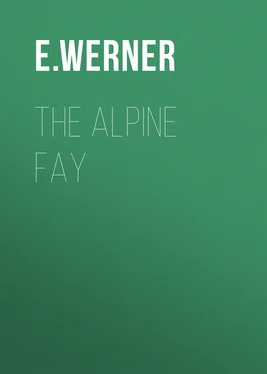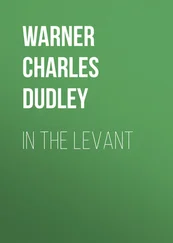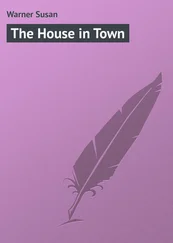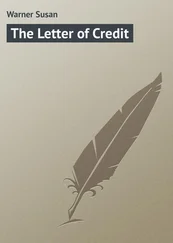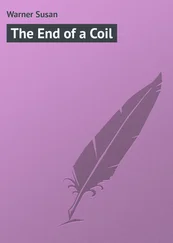E. Werner - The Alpine Fay
Здесь есть возможность читать онлайн «E. Werner - The Alpine Fay» — ознакомительный отрывок электронной книги совершенно бесплатно, а после прочтения отрывка купить полную версию. В некоторых случаях можно слушать аудио, скачать через торрент в формате fb2 и присутствует краткое содержание. Жанр: foreign_prose, foreign_antique, на английском языке. Описание произведения, (предисловие) а так же отзывы посетителей доступны на портале библиотеки ЛибКат.
- Название:The Alpine Fay
- Автор:
- Жанр:
- Год:неизвестен
- ISBN:нет данных
- Рейтинг книги:4 / 5. Голосов: 1
-
Избранное:Добавить в избранное
- Отзывы:
-
Ваша оценка:
- 80
- 1
- 2
- 3
- 4
- 5
The Alpine Fay: краткое содержание, описание и аннотация
Предлагаем к чтению аннотацию, описание, краткое содержание или предисловие (зависит от того, что написал сам автор книги «The Alpine Fay»). Если вы не нашли необходимую информацию о книге — напишите в комментариях, мы постараемся отыскать её.
The Alpine Fay — читать онлайн ознакомительный отрывок
Ниже представлен текст книги, разбитый по страницам. Система сохранения места последней прочитанной страницы, позволяет с удобством читать онлайн бесплатно книгу «The Alpine Fay», без необходимости каждый раз заново искать на чём Вы остановились. Поставьте закладку, и сможете в любой момент перейти на страницу, на которой закончили чтение.
Интервал:
Закладка:
"Very kind of you!" Thurgau laughed, bitterly. "Till next spring! And what then?"
"Then, of course, it must go."
The Freiherr was about to burst forth again, but there was something in the young man's cool composure that forced him to control himself. He made an effort to do so, but his colour deepened and his breath was short and laboured, as he said, roughly,–
"Does that seem to you a matter 'of course'? But what can you know of the devotion a man feels for his inheritance? You belong, like my brother-in-law, to the century of steam. He builds himself three–four palaces, each more gorgeous than its predecessor, and in none of them is he at home. He lives in them one day and sells them the next, as the whim takes him. Wolkenstein Court has been the home of the Thurgaus for two centuries, and shall remain so until the last Thurgau closes his eyes, rely–"
He broke off in the midst of his sentence, and, as if suddenly attacked by vertigo, grasped the table, but it was only for a few seconds; angry, as it were, at the unwonted weakness, he stood erect again and went on with ever-increasing bitterness: "We have lost all else; we did not understand how to bargain and to hoard, and gradually all has vanished save the old nest where stood the cradle of our line; to that we have held fast through ruin and disaster. We would sooner have starved than have relinquished it. And now comes your railway, and threatens to raze my house to the ground, to trample upon rights hundreds of years old, and to take from me what is mine by the law of justice and of God! Only try it! I say no,–and again no. It is my last word."
He did indeed look ready to make good his refusal with his life, and another man might either have been silent or have postponed further discussion. But Wolfgang had no idea of anything of the kind; he had undertaken to bring the matter to a conclusion, and he persisted.
"Those mountains outside," he said, gravely, "have been standing longer than Wolkenstein Court, and the forests are more firmly rooted in the soil than are you in your home, and yet they must yield. I am afraid Herr von Thurgau, that you have no conception of the gigantic nature of our undertaking, of the means at its disposal, and of the obstacles it must overcome. We penetrate rocks and forests, divert rivers from their course, and bridge across abysses. Whatever is in our path must give way. We come off victorious in our battle with the elements. Ask yourself if the will of one man can bar our progress."
A pause of a few seconds ensued. Thurgau made no reply; his furious anger seemed dissipated by the invincible composure of his opponent, who confronted him with perfect respect and an entire adherence to courtesy. But his clear voice had an inexorable tone, and the look which encountered that of the Freiherr with such cold resolve seemed to cast a spell upon Thurgau. He had hitherto shown himself entirely impervious to all persuasion, all explanation; he had, with all the obstinacy of his character, intrenched himself behind his rights, as impregnable, in his estimation, as the mountains themselves. To-day for the first time it occurred to him that his antagonism might be shattered, that he might be forced to succumb to a power that had laid its iron grasp thus upon the mountains. He leaned heavily upon the table again and struggled for breath, while speech seemed denied him.
"You may rest assured that we shall proceed with all possible regard for you," Wolfgang began again. "The preliminary work which we are about to undertake will scarcely disturb you, and during the winter you will be entirely unmolested; the construction of the road will not begin until the spring, and then, of course–"
"I must yield, you think," Thurgau interposed, hoarsely.
"Yes, you must , Herr Baron," said Elmhorst, coldly.
The fateful word, the truth of which instantly sank into his consciousness, robbed the Freiherr of the last remnant of composure; he rebelled against it with a violence that was almost terrifying, and that might well have caused a doubt as to his mental balance.
"But I will not,–will not, I tell you!" he gasped, almost beside himself "Let rocks and mountains make way before you, I will not yield. Have a care of our mountains, lest, when you are so arrogantly interfering with them, they rush down upon you and shatter all your bridges and structures like reeds. I should like to stand by and see the accursed work a heap of ruins; I should like–"
He did not finish his sentence, but convulsively clutched at his breast; his last word died away in a kind of groan, and on the instant the mighty frame fell prostrate as if struck by lightning.
"Good God!" exclaimed Dr. Reinsfeld, who had appeared at the door of the next room just as the last sentences were being uttered, and who now hurried in. But Erna was before him; she first reached her father, and threw herself down beside him with a cry of terror.
"Do not be distressed, Fräulein Erna," said the young physician, gently pushing her aside, while with Elmhorst's help he raised the unconscious man and laid him on the sofa. "It is a fainting-fit,–an attack of vertigo such as the Herr Baron had a few weeks ago. He will recover from this too."
The young girl had followed him, and stood beside him with her hands convulsively clasped and her eyes riveted upon the face of the speaker. Perhaps she saw there something that contradicted the consoling words.
"No, no!" she gasped. "You are deceiving me; this is something else! Papa! papa! it is I. Do you not know your Erna?"
Benno made no rejoinder, but tore open Thurgau's coat; Elmhorst would have helped him, but Erna thrust away his hand with violence.
"Do not touch him!" she exclaimed, in half-stifled accents. "You have killed him, you have brought ruin to our household. Leave him! I will not let you even touch his hand!"
Wolfgang involuntarily recoiled and looked in dismay that was almost terror at the girl, who at this moment was no longer a child. She had thrown herself before her father with outspread arms as if to shield and defend him, and her eyes flashed with savage hatred as though she were confronting a mortal foe.
"Go, Wolfgang," Reinsfeld said in a low tone, as he led him away. "The poor child in her anguish is unjust, and, moreover, you must not stay. The Baron may possibly recover consciousness, and if so he must not see you."
"May recover?" Elmhorst repeated. "Do you fear–"
"The worst! Go, and send old Vroni here; she must be somewhere in the house. Wait outside, and I will bring you tidings as soon as possible."
With these whispered words he conducted his friend to the door. Wolfgang silently obeyed; he sent into the room the old maid-servant, whom he found in the hall, and then went out into the open air, but there was a dark cloud on his brow. Who could have foreseen such an issue!
A quarter of an hour might have elapsed, when Benno Reinsfeld again made his appearance. He was very pale, and his eyes, usually so clear, were suffused.
"Well?" Wolfgang asked, quickly.
"It is all over!" the young physician replied in an undertone. "A stroke of apoplexy, undoubtedly mortal. I saw that at once."
Wolfgang was apparently unprepared for this reply; his lips quivered as he said in a strained voice, "The affair is intensely painful, Benno, although I am not in the least to blame. I went to work with the greatest caution. The president must be informed."
"Certainly; he is the only near relative, so far as I know. I shall stay with the poor child, who is suffering intensely. Will you undertake to send a messenger to Heilborn?"
"I will drive over myself to inform Nordheim. Farewell."
"Farewell," said Benno, as he returned to the house.
Wolfgang turned to go, but suddenly paused and walked slowly to the window, which was half open.
Читать дальшеИнтервал:
Закладка:
Похожие книги на «The Alpine Fay»
Представляем Вашему вниманию похожие книги на «The Alpine Fay» списком для выбора. Мы отобрали схожую по названию и смыслу литературу в надежде предоставить читателям больше вариантов отыскать новые, интересные, ещё непрочитанные произведения.
Обсуждение, отзывы о книге «The Alpine Fay» и просто собственные мнения читателей. Оставьте ваши комментарии, напишите, что Вы думаете о произведении, его смысле или главных героях. Укажите что конкретно понравилось, а что нет, и почему Вы так считаете.
